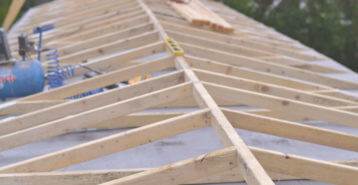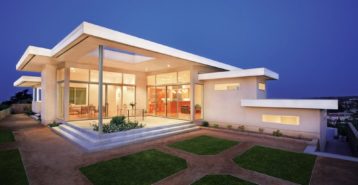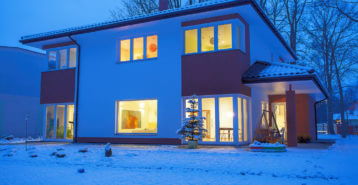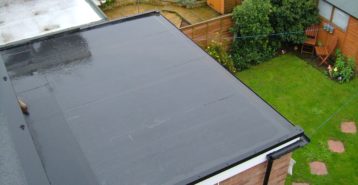How Much Does a Flat Roof Replacement Cost?
Replacing a flat roof typically costs $2.50 to $15 per square foot, or between $5,000 and $30,000 for a 2,000-square-foot roof. Costs can vary based on materials, location, and project complexity. On average, homeowners spend about $10,000 for a flat roof of this size.
Certain materials, like copper or green roofs, can far exceed the $15 average, while built-up or modified bitumen roofs are the most affordable.
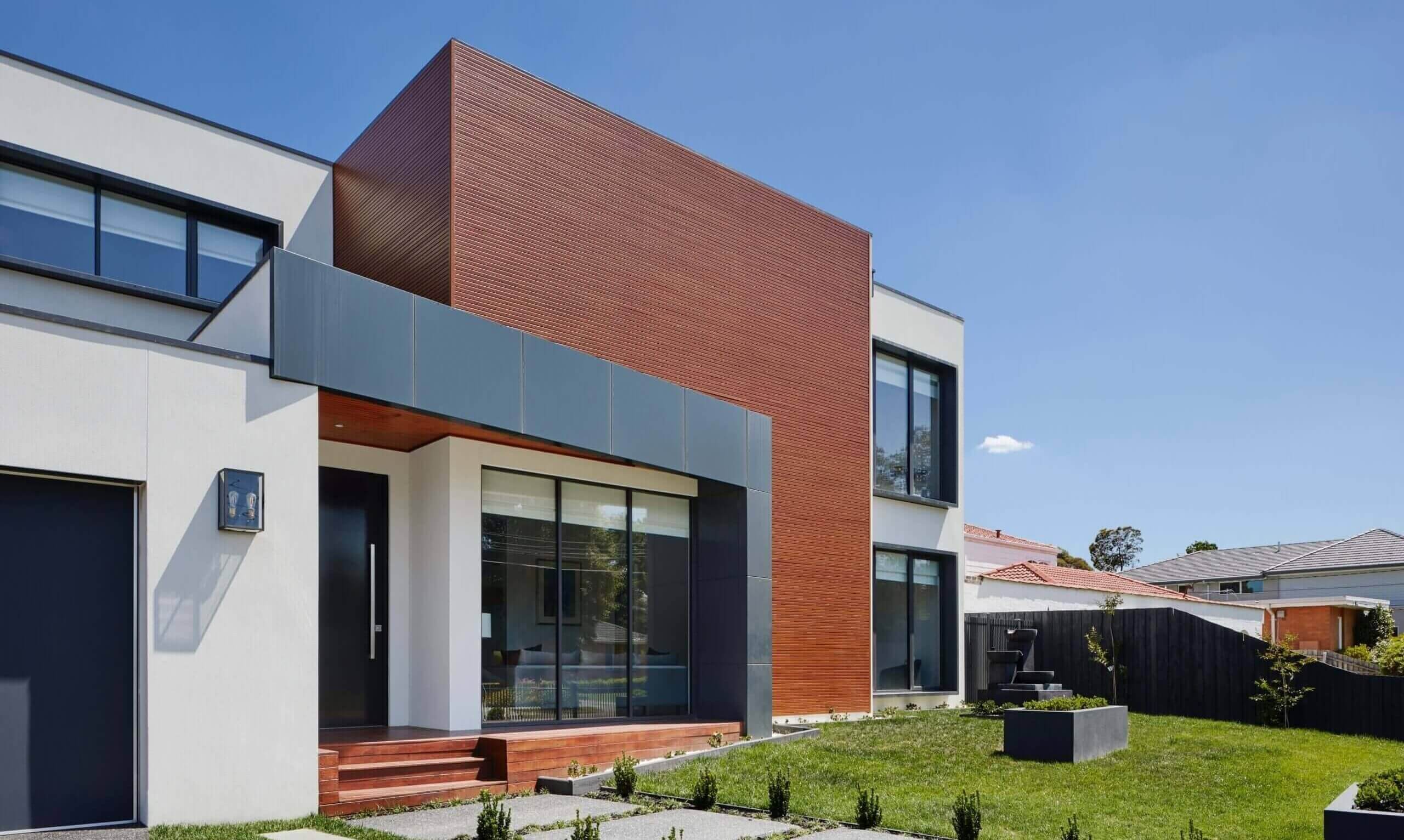
Flat Roof Replacement Cost by Size
Your roof’s size is the biggest factor in determining the installation cost of a flat roof. Here’s what you can expect to pay:
| Roof Size (Square Feet) | Average Cost (Materials + Installation) |
|---|---|
| 1,000 | $2,500 to $15,000 |
| 1,500 | $3,750 to $22,500 |
| 2,000 | $5,000 to $30,000 |
| 3,000 | $6,250 to $37,500 |
Use this range as a starting point, and remember to request estimates from multiple contractors to compare.
Flat Roofing Materials and Costs
Your roofing material will have a major impact on your total cost. Here’s a breakdown of popular options:
| Material | Cost per Sq. Ft. Installed | Features |
|---|---|---|
| Built-Up (BUR) | $2.50 to $4 | Low cost with layered durability |
| Modified Bitumen | $2.50 to $4.50 | Recyclable and offers good weather resistance |
| Rubber (EPDM) | $4.25 to $12 | Long lifespan and UV resistance |
| TPO/PVC Membranes | $5.50 to $12 | Energy efficient and watertight |
| Metal | $4 to $40 | Reflective and durable with low maintenance |
| Fiberglass (GRP) | $3.50 to $8.50 | Lightweight and fire resistant |
| Green Roof | $10 to $35 | Eco friendly but requires more upkeep |
Built-Up Roof (BUR) 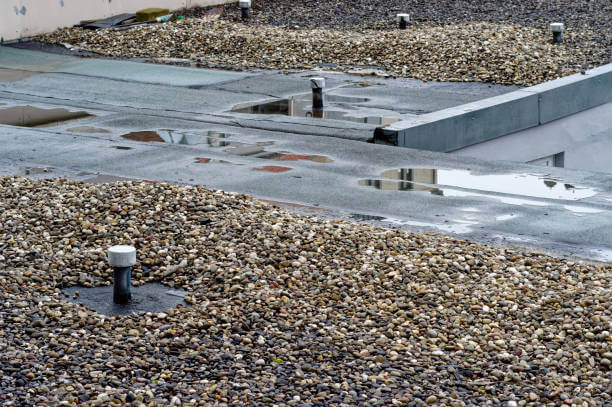
BUR systems use multiple layers of roofing felt alternated with hot-applied asphalt or tar. A final layer of gravel or a reflective coating helps protect the roof from sun damage. This tried-and-true method is known for its low cost and good protection, though it can be heavy and slow to install.
Built-up roofs typically range from $2.50 to $4 per square foot, which adds up to about $6,250 to $10,000 to install on a 2,500-square-foot roof.
Modified Bitumen
This asphalt-based material is reinforced with fiberglass or polyester for added strength. It’s installed in rolls and sealed with heat or adhesive. It performs well in a range of climates and is more flexible than BUR, making it a great option for flat roofs that experience extreme temperatures.
Modified Bitumen is priced between $2.50 and $4.50 per square foot, bringing the total cost for a 2,500-square-foot installation to roughly $6,250 to $11,250.
Rubber Membrane (EPDM) 
EPDM is a durable, synthetic rubber roofing membrane that comes in large black or white sheets. It’s lightweight, UV-resistant, and fairly easy to repair, though seams can be vulnerable if not installed correctly. This option is popular for both residential and commercial use.
Rubber (EPDM) roofing falls between $4.25 and $12 per square foot, translating to $10,625 to $30,000 for a standard 2,500-square-foot flat roof.
Thermoplastic Polyolefin (TPO) and PVC Membranes 
These single-ply roofing systems offer excellent resistance to UV rays, chemicals, and punctures. TPO is known for its energy efficiency, reflecting heat away from your home. PVC, while more expensive, offers superior fire and chemical resistance. Both are lightweight and ideal for hot climates.
TPO or PVC Membranes come in at $5.50 to $12 per square foot, or approximately $13,750 to $30,000 for a 2,500-square-foot roof.
Metal Roof
Metal roofing is a durable and long-lasting option for flat roofs. Common materials include aluminum, steel, and copper. Metal roofs are highly resistant to extreme weather, including wind, hail, and fire. They reflect sunlight, which can help reduce cooling costs in warmer climates. While they require a higher upfront investment, metal roofs often pay off over time through minimal maintenance and exceptional longevity. They can also be customized in a variety of finishes and styles to match your home’s aesthetic.
Metal roof costs range from $4 to $40 per square foot depending on the type of metal, with total costs running between $10,000 and $100,000 for a 2,500-square-foot roof.
Fiberglass or GRP (Glass-Reinforced Plastic)
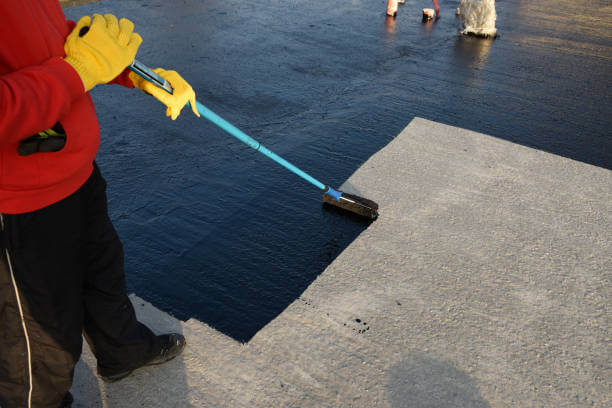
Lightweight and fire-resistant, fiberglass is a solid choice for flat roofs in mild climates. GRP creates a smooth, seamless surface that resists water and mold. However, it must be installed in very dry conditions, which can make timing your project more important.
Fiberglass (GRP) costs usually sit between $3.50 and $8.50 per square foot, amounting to $8,750 to $21,250 for a 2,500-square-foot flat roof.
Green Roof
Green roofs are covered with vegetation over a waterproof membrane. They offer excellent insulation, reduce stormwater runoff, and add natural beauty. While costly and maintenance-intensive, they’re an eco-friendly option that can also extend roof life.
Green roofs are one of the more premium options, costing $10 to $35 per square foot, or $25,000 to $87,500 for a full 2,500-square-foot roof installation.
Factors That Influence Flat Roof Cost
Replacing a flat roof involves several variables beyond the size of the surface. Understanding these can help you budget and prioritize features that matter most to you.
Roof Size and Shape
The larger your roof, the more you’ll pay in materials and labor. Unusual shapes or extensions (like patios or skylights) may also increase installation complexity and cost.
Type of Roofing Material
As shown above, roofing materials vary significantly in cost and longevity. A basic BUR or modified bitumen roof is budget-friendly but may not last as long as a rubber membrane or metal roof. Choosing the right material can help balance cost with long-term value.
Labor Costs
Labor rates typically range from $40 to $80 per hour or $3 to $7 per square foot. Costs are higher in urban areas and for labor-intensive materials like BUR or green roofing. Flat roofs generally require 2 to 5 days to install, depending on the roof’s size and complexity.
Old Roof Removal
Tearing off the old roof and disposing of the debris can cost an additional $1 to $5 per square foot. Some contractors include this in their estimates, while others bill it separately — be sure to ask when reviewing quotes.
Permits and Inspections
Local building codes may require permits before work begins, which can cost between $250 and $600 or more. A final inspection, recommended to ensure quality installation, may cost an additional $100 to $300.
Drainage and Ventilation
Proper drainage is essential for flat roofs to prevent water pooling. Replacing or adding drains can cost $600 to $1,000. Vent installation ranges from $300 to $650 and may be necessary for some roofing systems.
Roof Sealants and Coatings
Applying a waterproof sealant can improve your roof’s resistance to weather and extend its life. Depending on the product and coverage area, this could add $400 to $1,600 to your total cost.
Warranty Coverage
Some materials come with longer manufacturer warranties, which can influence your decision. Professional installers may also offer workmanship guarantees, giving you added peace of mind.
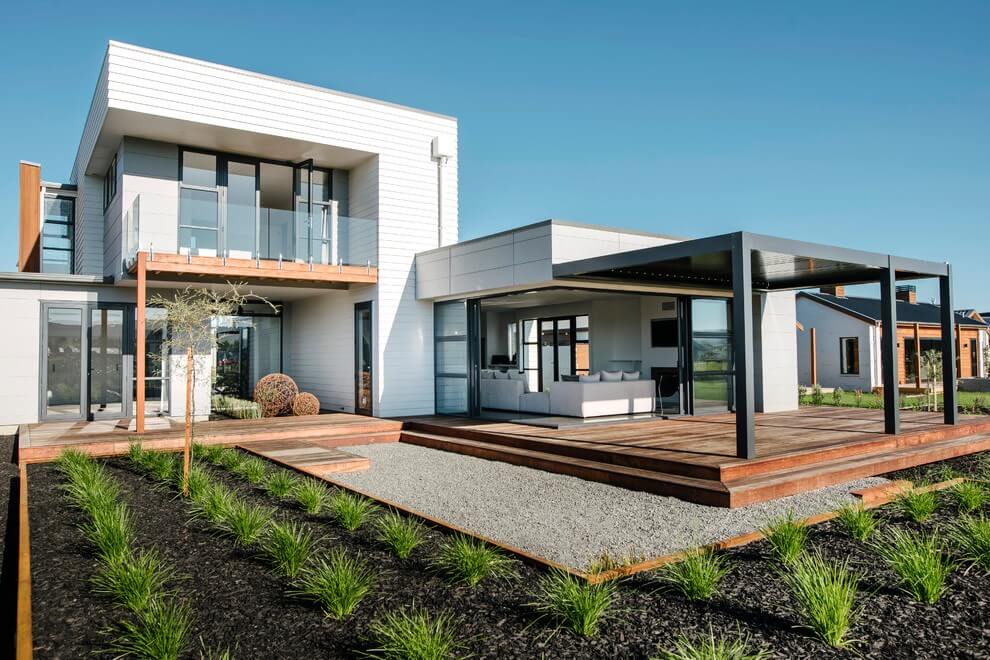
Pros and Cons of Flat Roofs
Pros
- Lower upfront costs compared to sloped roofs.
- Quicker, safer installation.
- Great for solar panels and rooftop gardens.
- Modern, streamlined appearance.
- Often better suited to warm or dry climates.
Cons
- Shorter lifespan than pitched roofs (10–20 years on average).
- Poor drainage may lead to water pooling or leaks.
- More maintenance is needed in climates with heavy rain or snow.
- May be less insulated unless designed properly.
How to Maintain Your Flat Roof
Flat roofs can last longer with regular care. Here are a few strategies to properly maintain a flat roof and prevent damage:
- Clean off leaves and debris regularly.
- Inspect for cracks or standing water after storms.
- Apply roof sealant every few years for added protection.
- Schedule professional inspections at least once a year.
- Replace drainage systems or vents as needed.
Should You Repair or Replace?
Minor issues like small leaks or punctures can often be patched. But consider a replacement if:
- Repairs would cost more than half the price of a new roof.
- Your roof is over 15 years old.
- You’re seeing repeated damage in multiple spots.
- A new roof would be covered by warranty or insurance.
Can You DIY a Flat Roof Replacement?
We don’t recommend it. Flat roof installations require skill, special tools, and safety measures. One mistake, like an improperly sealed seam, can lead to major water damage.
Hiring a pro ensures your warranty remains valid and your home stays protected. Some homeowners may assist with prep or cleanup, but the installation itself is best left to licensed contractors.
We can connect you with up to four licensed contractors in your area so you can get quotes and compare pricing. Click below to get started.
FAQ: Flat Roofs
Is a flat roof a good idea?
A flat roof can be a great option for modern homes, especially in dry or warm climates. It’s typically cheaper and faster to install than a sloped roof and provides usable space for solar panels, HVAC units, or rooftop gardens. However, it does require more frequent maintenance and is less effective at shedding water and snow, so proper drainage design is critical.
What type of roof is best for a flat roof?
The best roofing materials for flat roofs include EPDM rubber, TPO or PVC membranes, modified bitumen, and built-up roofing (BUR). These materials are designed for low-slope installations and offer solid protection against leaks, UV rays, and punctures. For premium performance, metal roofing or green roofs are also durable and energy-efficient options, though they come with a higher price tag.
What is the disadvantage of a flat roof?
The biggest disadvantages of flat roofs are poor drainage and a shorter lifespan. Since water doesn’t run off as easily as it does on a sloped roof, flat roofs are more prone to pooling, leaks, and moisture damage. They also tend to last 10 to 20 years — less than pitched roofs — and may require more frequent maintenance or early replacement if not properly installed.


